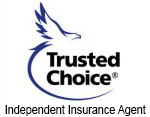Frequently Asked Questions on Agricultural Insurance
How Does Ag Insurance Work?
Crop insurance is purchased by agricultural producers, including farmers, ranchers, and
others to protect themselves against the unknown.
A loss can happen to their crops due to natural disasters, such as hail, drought, and
floods, or the loss of revenue due to declines in the prices of agricultural commodities.
What Is Coverage Like for Crop Insurance?
The two general categories of crop insurance are called crop-yield insurance and crop-revenue insurance.
Crop-yield insurance consists of two main classes:
- Crop-hail insurance is available from private insurers because hail is a narrow peril
that occurs in a limited place and its accumulated losses tend not to overwhelm the
capital reserves of private insurers.
- Multi-peril crop insurance covers the broad perils of drought, flood, insects,
disease, etc., which may affect many insureds at the same time and present the
insurer with excessive losses.
Why Do Premiums for Insuring Crops and Farming Vary?
Crop-revenue insurance is a combination of crop-yield insurance and price insurance. Crop-revenue insurance covers the decline in price that
occurs during the crop's growing season.
A farmer or grower may desire to grow a crop associated with a particular defined attribute that potentially qualifies for a premium over
similar commodity crops, agricultural products, or derivatives thereof.
The particular attribute may be associated with the genetic composition
of the crop, certain management practices of the grower, or both. However, many standard crop insurance policies do not differentiate between
commodity crops and crops associated with particular attributes. Accordingly, farmers have a need for crop insurance to cover the risk of growing
crops associated with particular attributes.
Get an Ag Insurance Quote from Koch Insurance
To see how our ag insurance policies can help you feel secure, please contact us for a free
quote. Koch Insurance agencies are located throughout South Dakota, with office
locations in Tea, Tyndall, Tabor, Springfield, and Yankton. We'll provide you with all the
information you need to make an informed decision on your farming safety.
Get a No Obligation Quote





